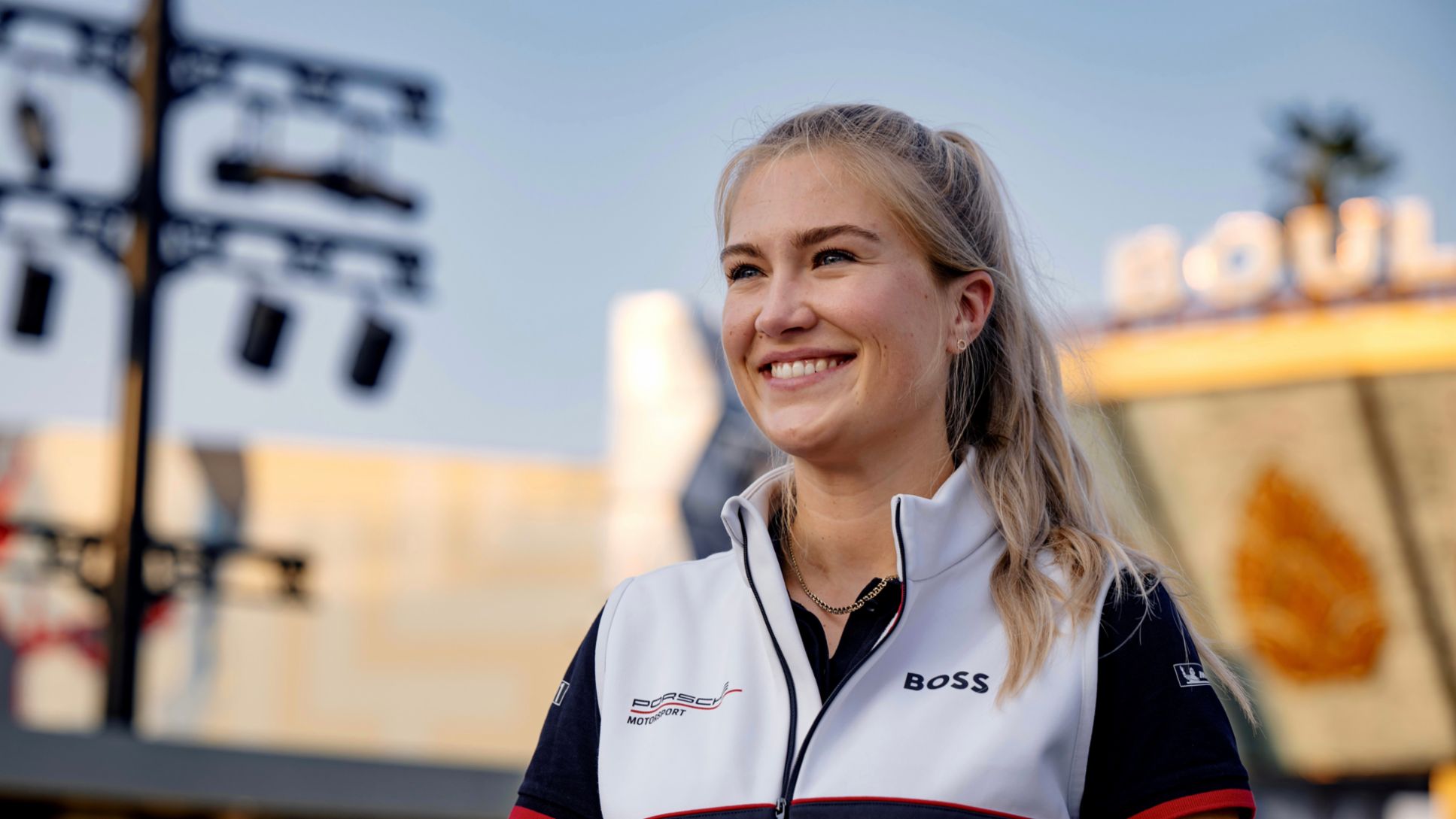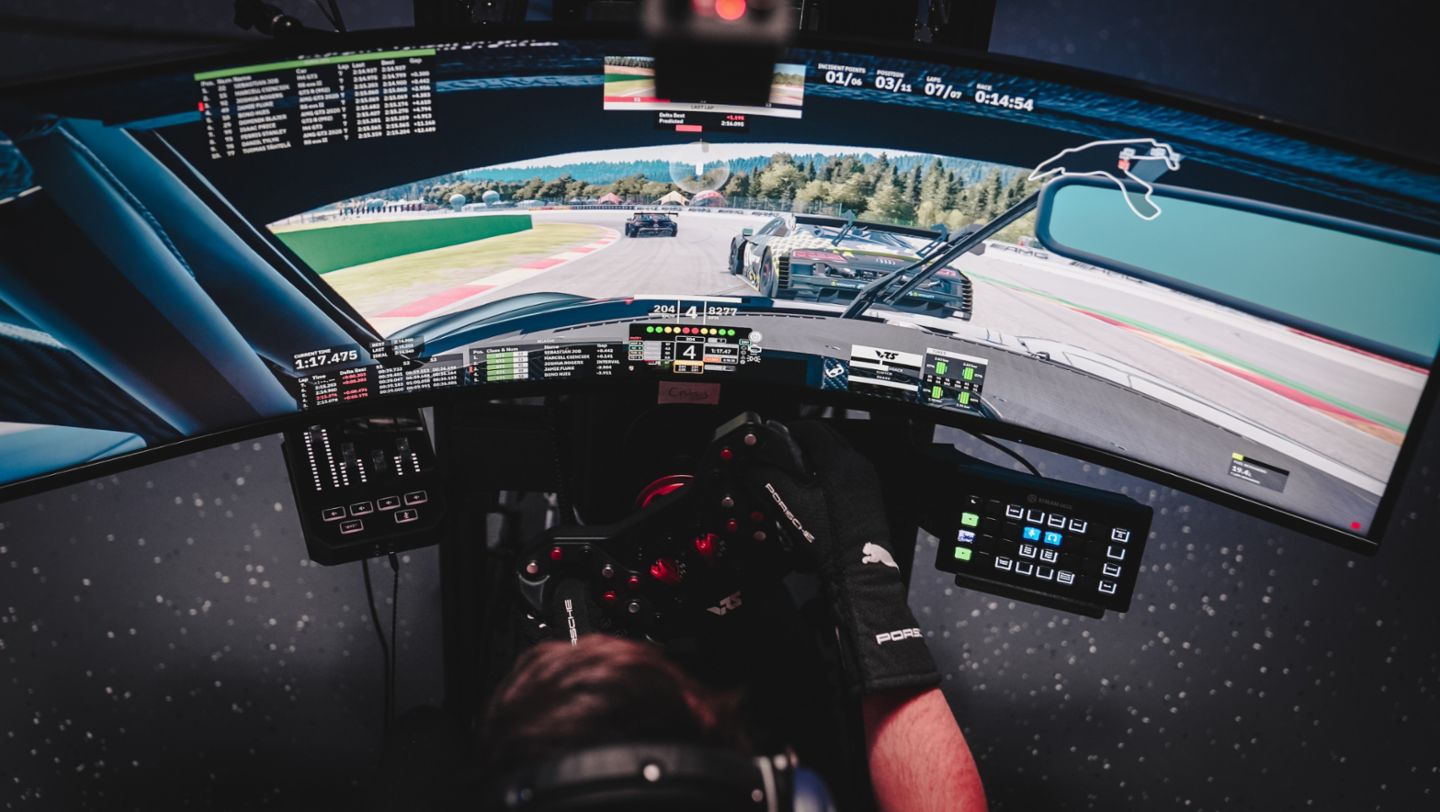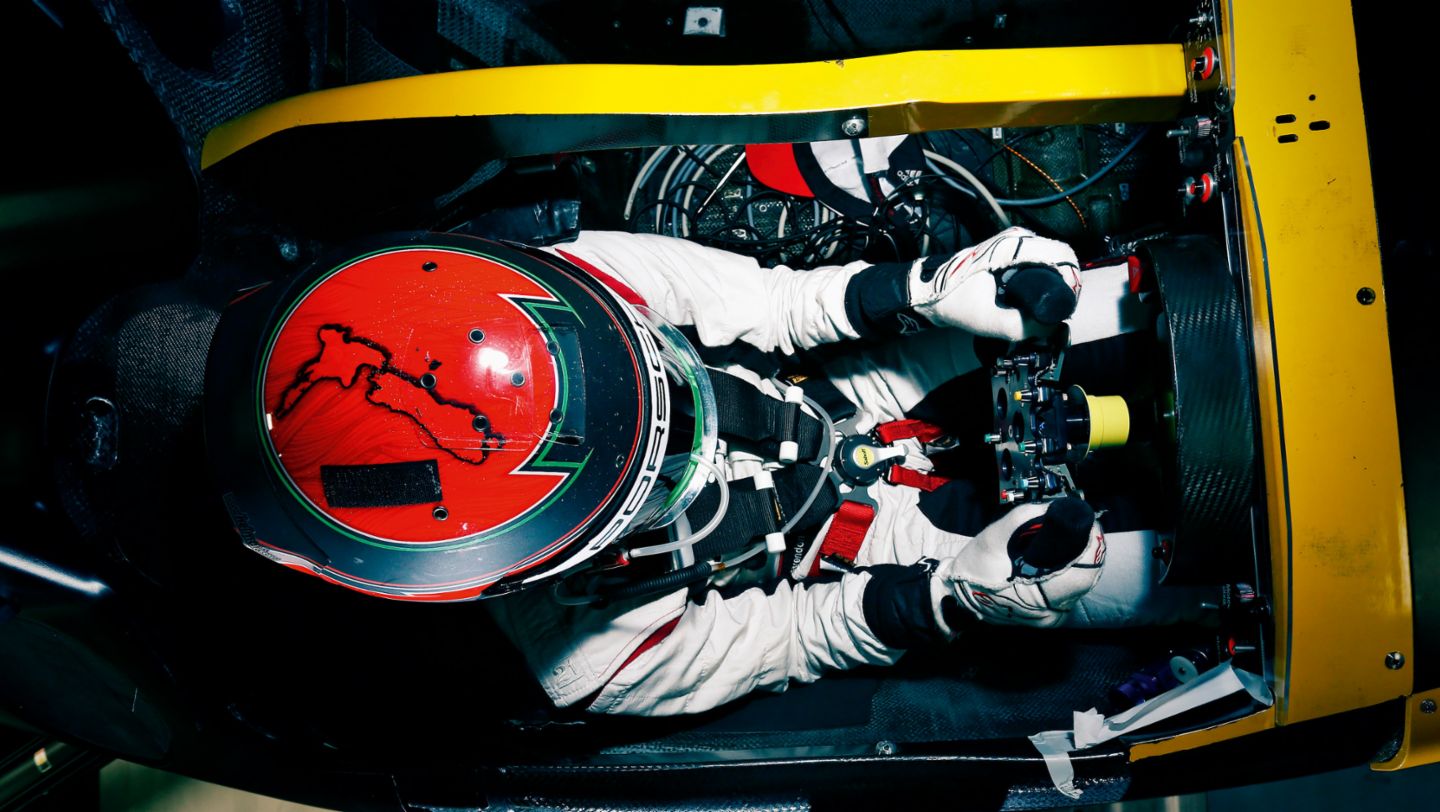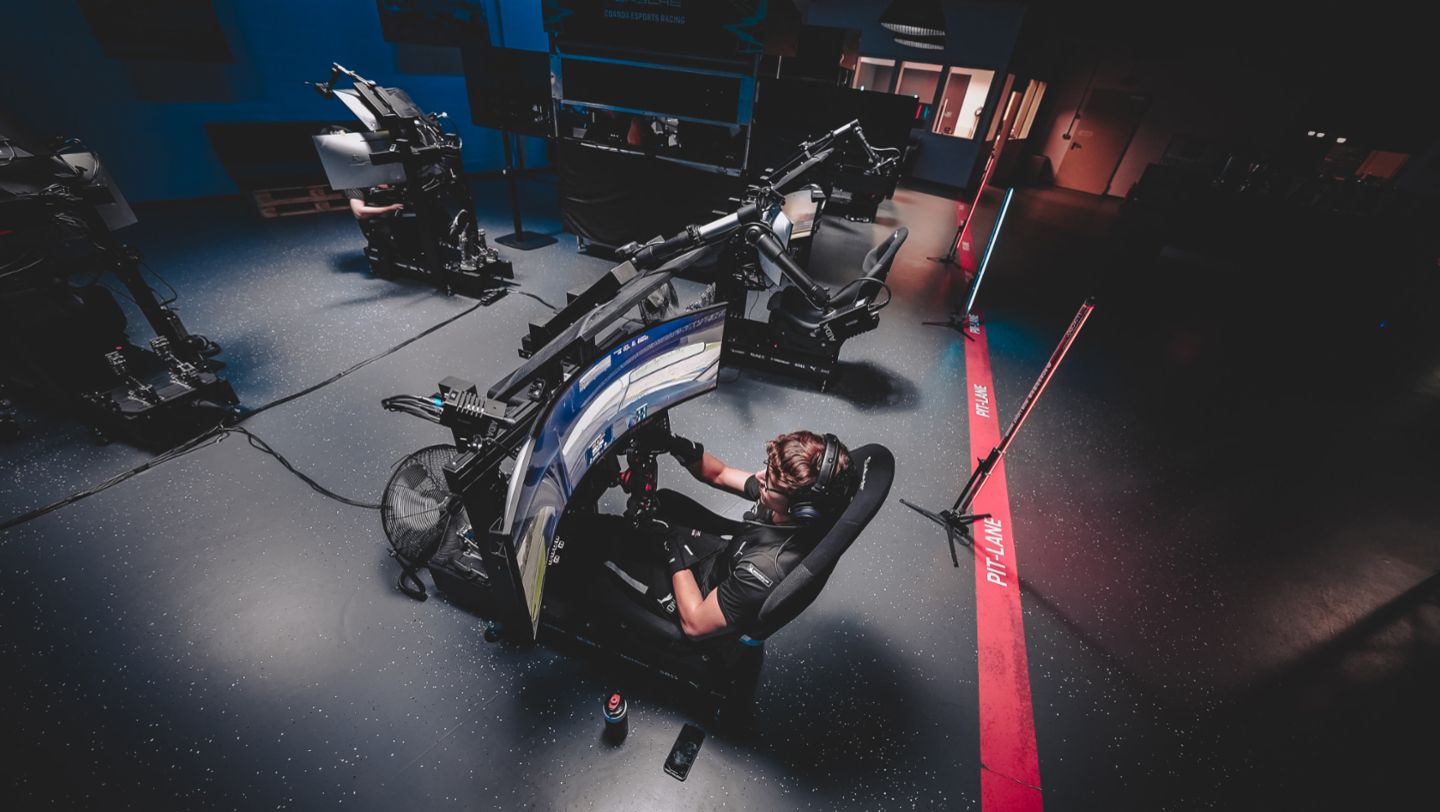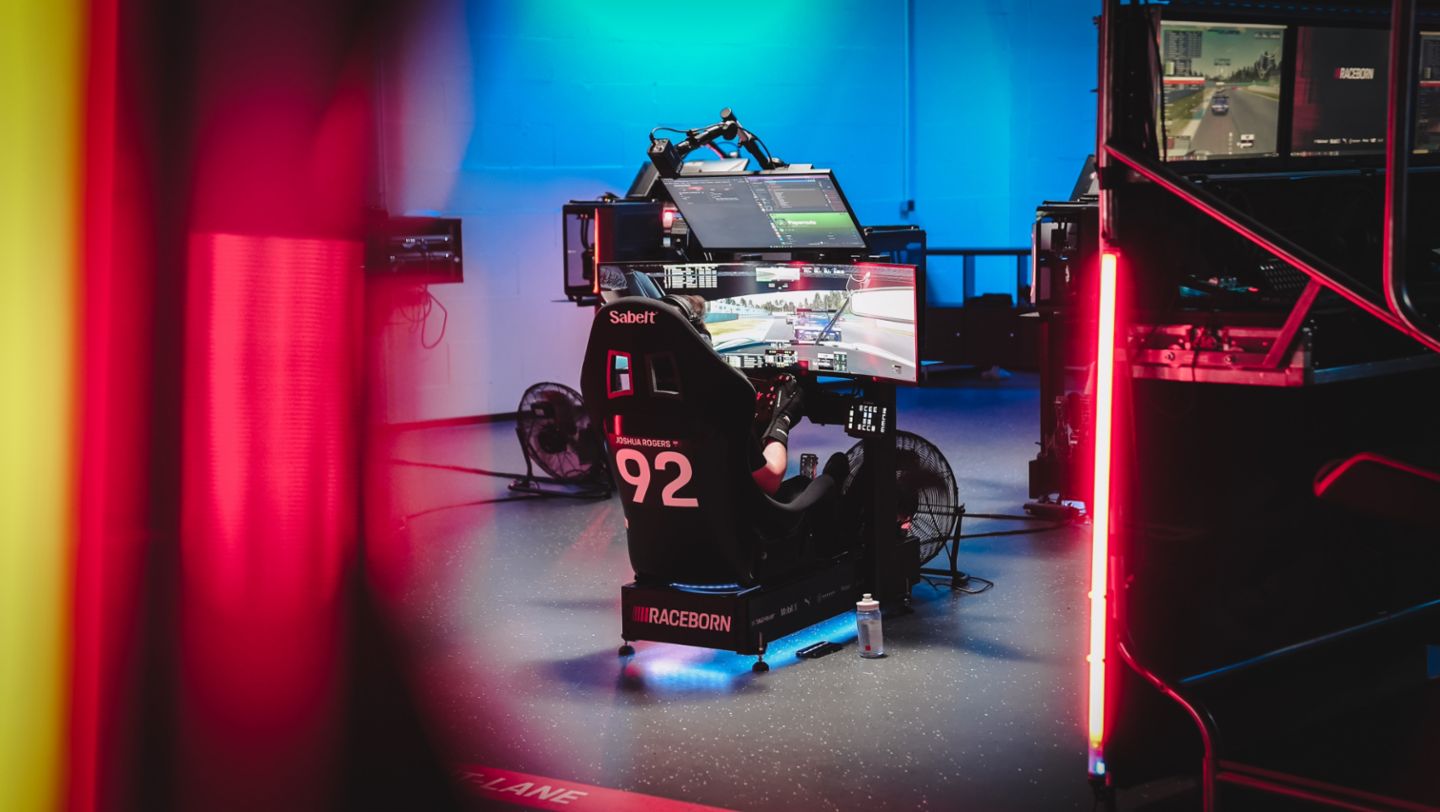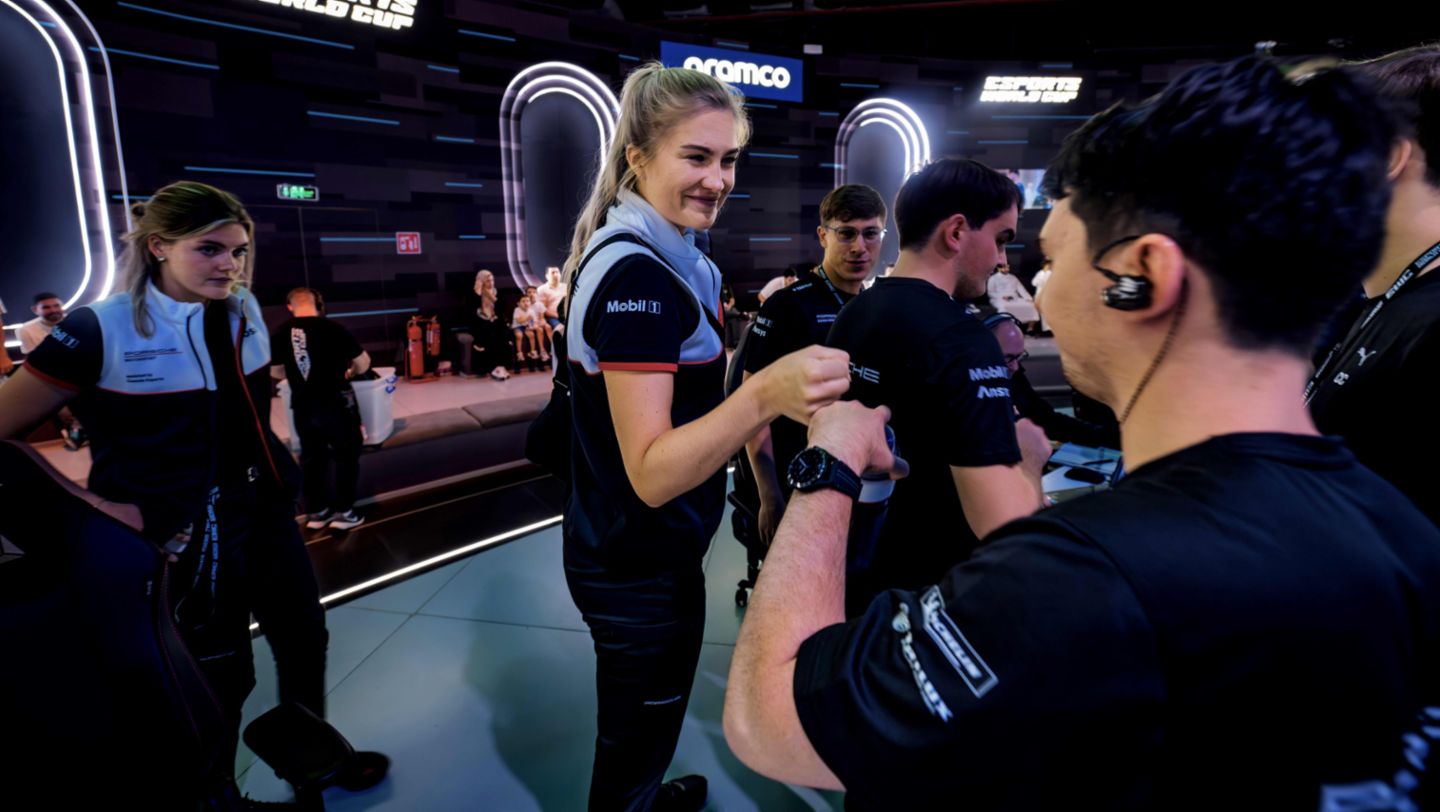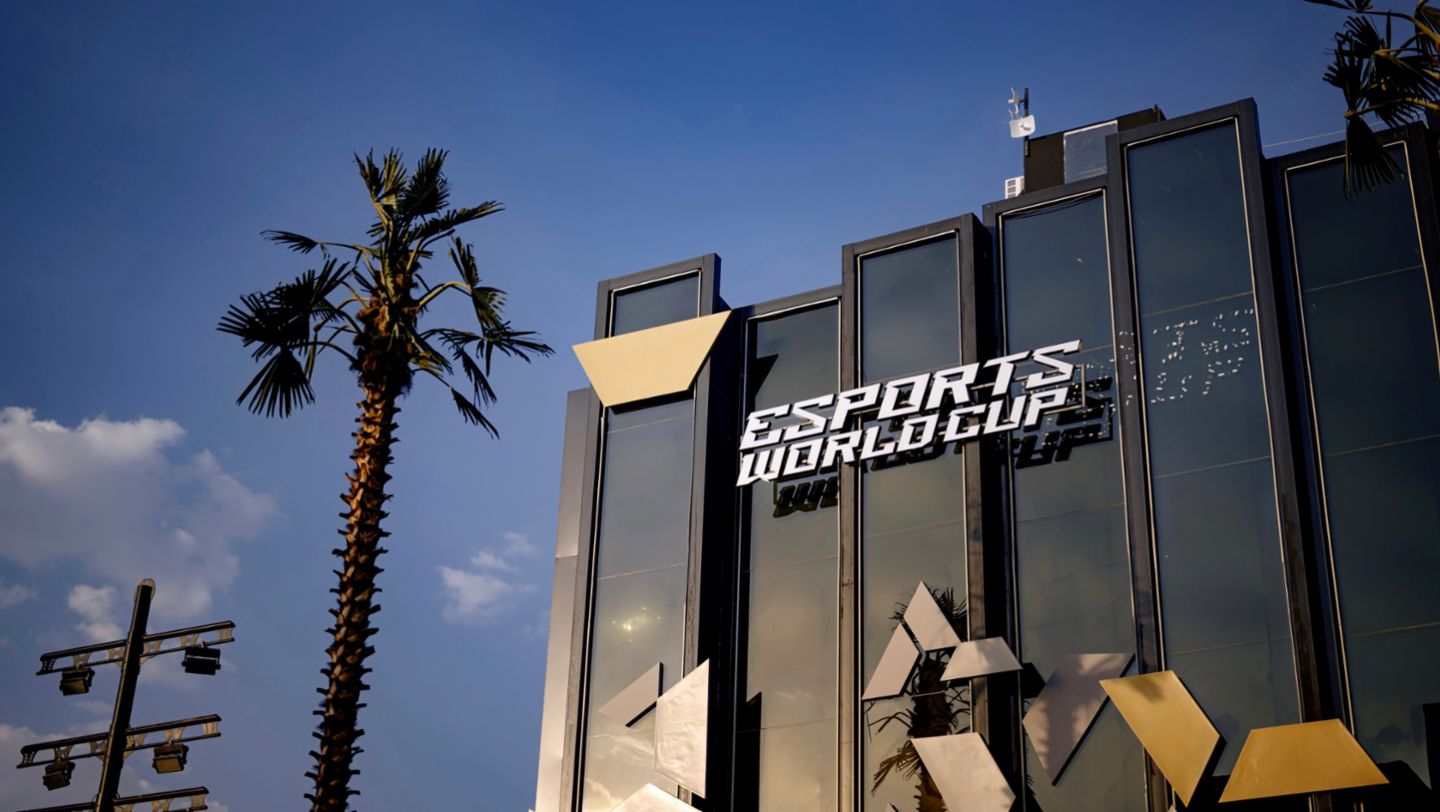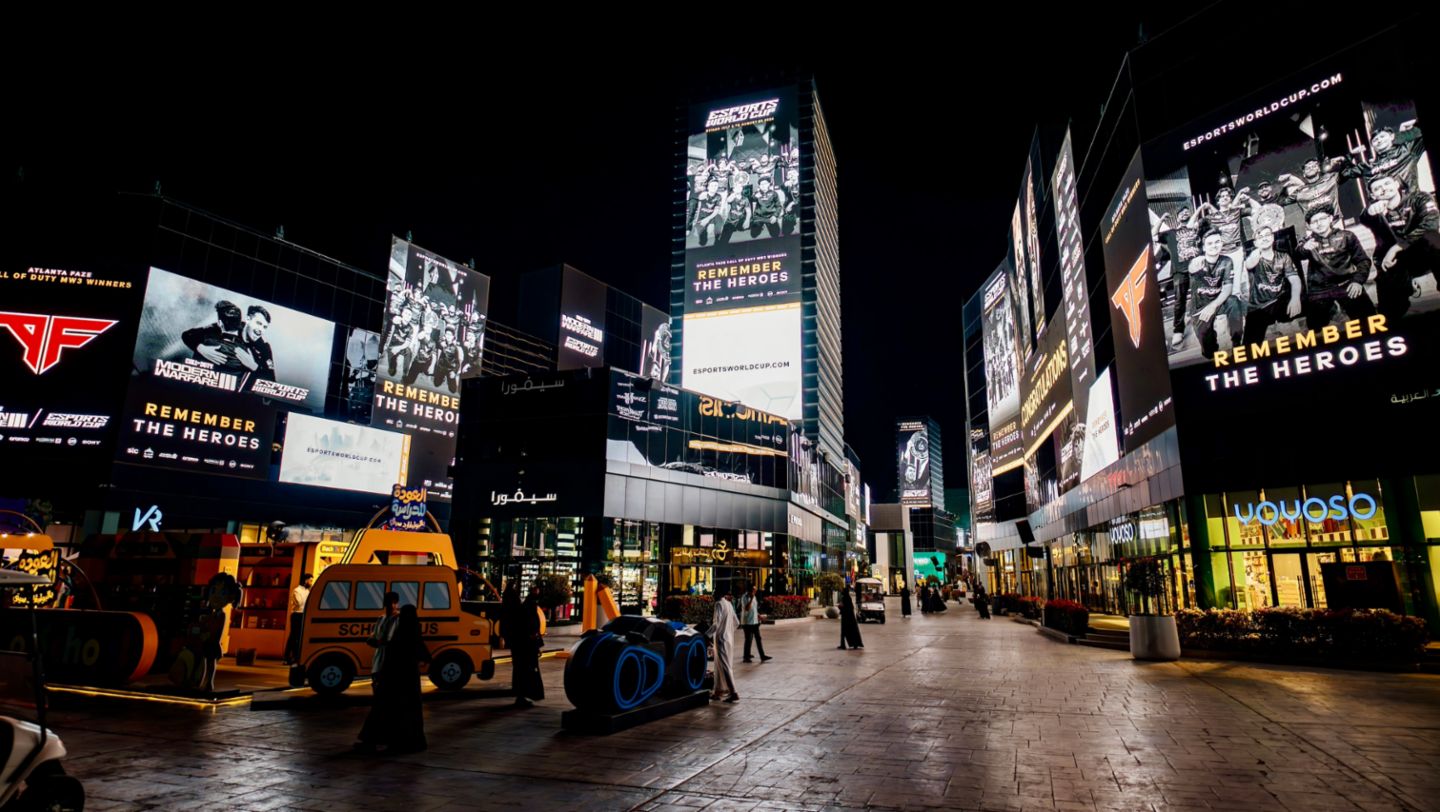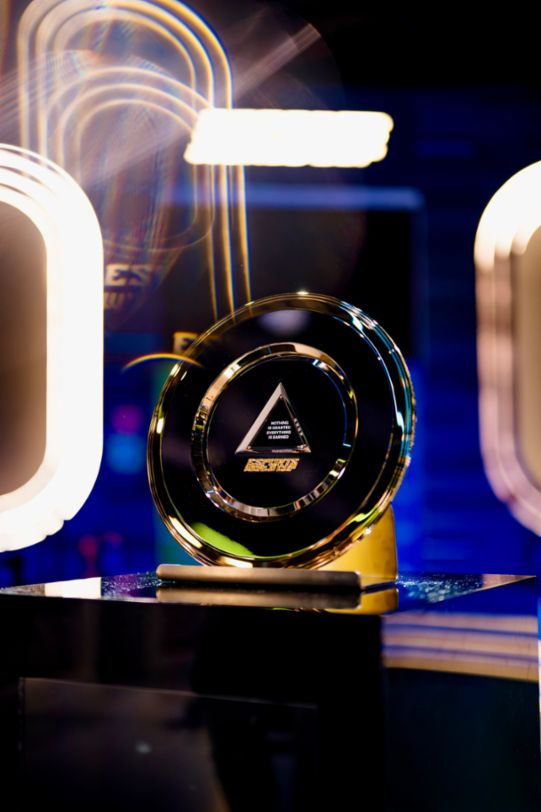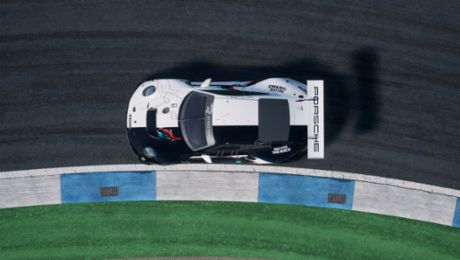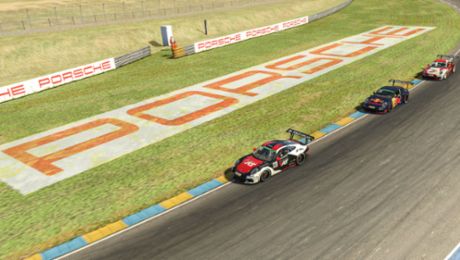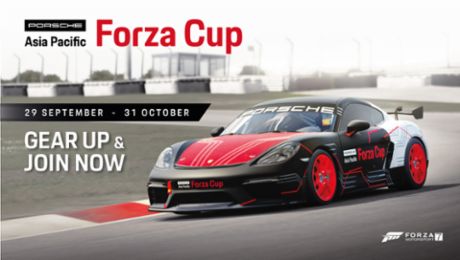Nina, why is Porsche involved in sim racing?
Nina Braack: "Porsche lives and breathes motorsport. With sim racing, we reach a young, tech-savvy audience – away from the classic ‘tarmac motorsport’, as I call it. A wide audience can drive our racing cars digitally and win competitions with them. This creates connections and thus strengthens our brand."
How could one visualise the esports market?
Nina Braack: "Esports and sim racing as an esports discipline are part of the gaming industry. Gaming is often seen as a marginal pastime – like gaming in the kid’s room with the blinds drawn. In fact, it’s a global phenomenon: the gaming industry generates more revenue than the film and music industries combined. People all over the world play video games, whether it be on PCs, game consoles or mobile phones. This can be for leisure, for the joy of playing or even for professional competitions like Esports. The largest individual markets include the USA and China – as they are Porsche."

What role does Germany play in gaming?
Nina Braack: "Being a relatively affluent country, the German public has been playing video games for a long time, they’re popular here. However, Germany is also an important industry player. Gamescom, for example, the world’s largest video game trade fair, takes place in Cologne. ESL, the leading Esports tournament organiser, is also based in Cologne."
Esports combine video games and sport: how does this fit together?
Nina Braack: "Talent, training, tactics and teamwork – that’s what Esports are all about. So it all dovetails very well, especially as sport is not defined by physicality alone. Because we simulate real conditions in sim racing, a lot of the demands placed on athletes in our discipline are transferred from the real world to the digital sphere."
What challenges do e-athletes have to overcome in sim racing in particular?
Nina Braack: "Let’s take the steering feedback for example. In principle, sim racers have to turn the steering wheel with the same force as motor racing drivers on real racetracks. Without gloves, callused hands are a given. Of course, the centrifugal forces are missing, but in many other areas sim racers compete at the same level as their real-life racing colleagues. To give another example, there are hardly any differences in heart rate or adrenaline levels. Mentally, the performance level in the simulator can be even higher than on the road. This is because the sim racers have to compensate for the absence of certain sensations – the lack of g-forces for example. To fully feel the simulated vehicle, they have to use other senses, such as their eyes and hands. This takes a lot of mental effort."
What does a Porsche works team that battles exclusively for virtual victories look like?
Nina Braack: "The Porsche Coanda Esports Racing Team has a highly professional structure. It consists of management, performance, fitness and mental coaches, as well as media and business personnel. The concept is akin to that of Porsche Penske Motorsport, where the factory cooperates with an external racing team. In our case, we’re partnered with Coanda Esports, based in Gronau, Germany. This allows our expertise and resources at Porsche to merge with the skills of true Esports specialists. The team has access to everything it needs at the Esports hub in Gronau, including eight simulators, two command centres, a TV studio and a streaming room. Our drivers even share a flat in a nearby house."
How do the sim racers prepare for their competitions?
Nina Braack: "E-athletes train significantly more than real racing drivers because their equipment is available to them around the clock. Additionally, there aren’t costs such as track hire, logistics or fuel and tyres. Another special feature is that they can drive their competitors’ vehicles to familiarise themselves with their strengths and weaknesses. The intensive training creates an enormous level of competition."
Can sim racers become ‘real’ racing drivers?
Nina Braack: "There are many examples of this. The German Tim Heinemann, for instance, who drove for Porsche in the DTM. He managed to bypass a lot of cost-intensive karting thanks to sim racing. Young racing drivers in particular have long felt at home on both sides – former Porsche Juniors Ayhancan Güven, Laurin Heinrich and Bastian Buus, to name a few. All three have also competed for Coanda Esports in the past and continue to use sim racing to prepare for races with the real Porsche 911 GT3 R. However, the best-known sim racer and real-life motorsport driver is undoubtedly Formula 1 world champion Max Verstappen."
Where do the best of the best drive in virtual racing?
Nina Braack: "Since 2023, the ESL R1 has been regarded as the premier class of sim racing. It’s based on the ‘Rennsport’ simulation platform and contested with vehicles that comply with GT3 regulations, including the 911 GT3 R. Twelve teams, each comprising four drivers, compete in a team championship and a drivers’ championship. In the online events, the drivers qualify for the grand finale in front of an audience at the Esports World Cup. There, the best ESL R1 drivers compete against each other for 500,000 US dollars in prize money. The absolute top teams line up on the grid there. Other highlights of the season include the virtual 24 Hours of Le Mans and, of course, our digital one-make cup, the Porsche TAG Heuer Esports Supercup."
What can Porsche learn from sim racing for the real world?
Nina Braack: "Simulations are becoming increasingly important, whether in race preparation or in the development of both our racing and road vehicles. From a business and environmental perspective, they save resources and are therefore even more sustainable than tests and prototypes in the analogue world. Of course, the simulations used in the development of road vehicles are not the same as those used by our Esports works drivers. But the principle of digitally reproducing real conditions is the same. In asphalt motorsport, simulations have become indispensable – especially where testing is limited. In Formula E, for example, our race drivers spend a good three days in the simulator per race, from morning to night."
What makes Porsche’s involvement in sim racing so special?
Nina Braack: "Without doubt: we are a genuine Porsche works team. This means that we operate at the highest level in sporting terms and also place the highest demands on ourselves. Sure, our projects serve an entrepreneurial purpose. And yet we make our decisions primarily to gain a competitive advantage. We want to win and that is the centre of everything we do."
About Nina Braack

Nina Braack, born in 1993 in Frankfurt am Main, moved to Porsche Motorsport in 2022 and has been in charge of the Porsche Coanda Esports Racing team ever since. Among other things, she studied sports and event management and played in the German 1st and 2nd volleyball leagues for ten years. Immediately after her arrival in 2023, the Porsche Coanda Esports Racing Team won two titles in the ESL R1 sim racing premier class.
